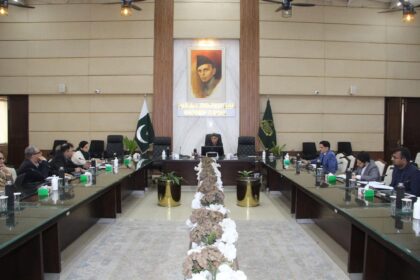HAZECO Hiring Sparks Outrage in Hazara as Surplus Staff Replaces Local Aspirants
Czechangez Khan Jadoon
Abbottabad/Islamabad: The recent appointment of surplus employees from other regions into the newly established Hazara Electric Supply Company (HAZECO) has triggered widespread frustration among the people of Hazara, particularly its unemployed youth and WAPDA union leaders. Despite promises of local employment and regional upliftment, residents now feel betrayed as positions originally intended for them are being filled by staff from defunct power plants elsewhere in the country.
Before HAZECO’s formation, political leaders and government officials promised that the company would resolve electricity issues and generate employment specifically for the people of Hazara. However, contrary to those assurances, sources confirm that 40 employees from closed power plants in Jamshoro and Muzaffargarh have already been transferred to Abbottabad. Preparations are underway to send 250 more, mostly non-technical staff, sparking accusations of systematic exclusion of local youth.
Local civic groups and WAPDA union representatives have strongly opposed this move. They argue that the unadvertised appointments disregard employment quotas and deny Hazara’s youth fair access to jobs. The region, already grappling with high unemployment, had hoped for transparency and local prioritization—particularly a 20% quota for children of WAPDA employees. Instead, they face what many are calling a blatant violation of their rights.
A union leader in Hazara stated,
“The youth of Hazara are already deprived of jobs, and now even their hopes are being crushed. This move is an outright denial of their rightful opportunities.”
Civil society groups and political observers warn that such policy decisions not only deepen regional resentment but also risk reigniting old grievances over rights, equity, and representation. The omission of local hiring in HAZECO has renewed longstanding concerns tied to Hazara’s calls for a separate province and equal access to public sector opportunities.
Notably, the FIR of this controversy isn’t just about administrative choices but about broader questions of governance. Critics argue that resolving surplus staff issues from closed power plants should not come at the cost of sidelining entire communities. The strategy of absorbing displaced employees into HAZECO, without consulting or considering local stakeholders, reflects a top-down approach that risks breeding further disenfranchisement.
Amid rising public anger, community organizations and union leaders have begun consultations to launch a protest campaign. Peaceful demonstrations, sit-ins, press briefings, and social media advocacy are being planned to press authorities for a reversal of the appointments and a commitment to local recruitment.
“If government institutions continue to ignore our legitimate demands, we will engage in peaceful but firm protests to ensure our voice is heard in Islamabad,” said one activist involved in organizing the movement.
Political leaders in Hazara are now under intense public pressure. Constituents have demanded an All Parties Conference to present a united front and resolve the matter urgently. Failure to act, observers warn, could lead to severe political consequences in upcoming elections.
MISS. IQRA LIAQUAT, a local journalist, summed up public sentiment bluntly:
“It seems that Hazara’s people are only remembered on election day. The rest of the time, they are treated as second-class citizens.”
Experts suggest a pragmatic solution—granting temporary or contractual placement to surplus employees while reserving permanent posts for qualified locals recruited through an open and transparent process. Such a strategy could balance national employment obligations with local development goals.
This unfolding situation poses a serious test for the government’s commitment to inclusive governance. The people of Hazara are not asking for favors—they are demanding fairness. If promises are not fulfilled and local voices continue to be ignored, the region may once again find itself at the center of political unrest rooted in a struggle for dignity, rights, and representation.











